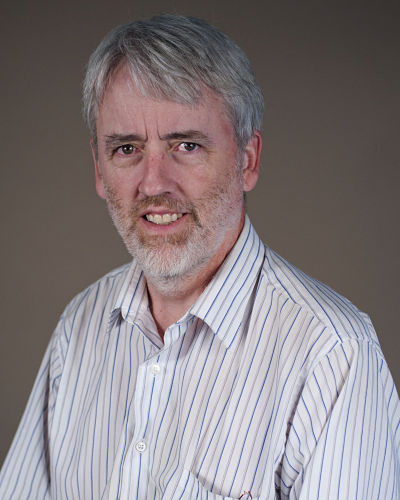Virology & Mycology
Open Access
ISSN: 2161-0517
ISSN: 2161-0517

Jerome Schaack
Associate Professor, Department of Immunology & Microbiology, Denver Medical School
University of Colorado, USA
Jerry Schaack, Ph.D., earned his doctoral degree from Yale University in 1983. He completed 5 years of postdoctoral research training at Yale University (1983-84) and Princeton University (1984-88).
Dr. Schaack joined the faculty of the University of Colorado School of Medicine Department of Microbiology in 1988.
My laboratory is primarily interested in the construction and analysis of adenovirus vectors for gene therapy. Adenovirus (Ad) offers great promise as a gene therapy vector, but is limited by the strong inflammatory response that is elicited upon introduction of the large amounts of virus necessary to efficiently transduce tissues in vivo. The inflammation appears to be, in part, dependent on the ability of the vector to replicate its DNA to low levels after transduction. Using preterminal protein (pTP)-expressing cell lines that we developed, we have introduced a deletion-mutant allele of the pTP gene into the viral chromosome. Since pTP serves as primer for replication of adenovirus DNA and remains covalently attached to the 5' end of each of the linear viral DNA strands throughout the infectious cycle, the pTP-deletion mutant virus is completely incapable of replication in the absence of complementation. To test the induction of inflammation by adenovirus vectors, we are collaborating with Dr. John Moorhead in the department of Immunology. We inject viruses subdermally in mouse ears, measuring the thickness of the ears immediately prior to and at 24 hr intervals after injection. Adenovirus-induced inflammation in mouse ears is accompanied by edema that correlates well with the level of inflammation (Moorhead et al., 1999; reference below). Edema measurement is sensitive and much more easily measured than inflammation. While Ad vector-induced inflammation is considered normal, the parental virus frequently causes asymptomatic infections, suggesting that Ad vector-induced inflammation may be caused by changes that are introduced into the virus and that Ad vectors can be made to be non-inflammatory. To test this, we constructed viruses containing alleles of the genes normally deleted in the construction of vectors and tested them for induction and inhibition of edema. We demonstrated that a virus containing most of the genes normally deleted in the construction of gene therapy vectors is not inflammatory and in fact, inhibits inflammation induced by the Ad capsid (Schaack et al., 2004; reference below). We are using the system that we have developed to analyze the contribution of various adenovirus gene products as well as foreign genes introduced into the vector to inflammation. A second area of interest concerns the retoviral vector-mediated transduction of the fetus in utero. In collaboration with Drs. Henry Galan, Frank Accurso, Ron Banks, and John Hobbins, we have tested models of in utero gene therapy in macaques and sheep using intra-amniotic introduction of murine retroviral vector producer cells. The producer cells survive for a limited time after injection and produce large amounts of virus vector. The vector is thus exposed to mucosal surfaces of the developing fetus. We have demonstrated that both macaque and sheep amniotic fluid inhibit transduction by vectors produced in a murine producer line and that macaque, but not sheep, amniotic fluid causes rapid destruction of the producer cells (Bennett et al., 2001 and Galan et al., 2002; references below). We plan to test the mechanisms by which amniotic fluid affects foreign cell survival and retroviral vector transducing activity.